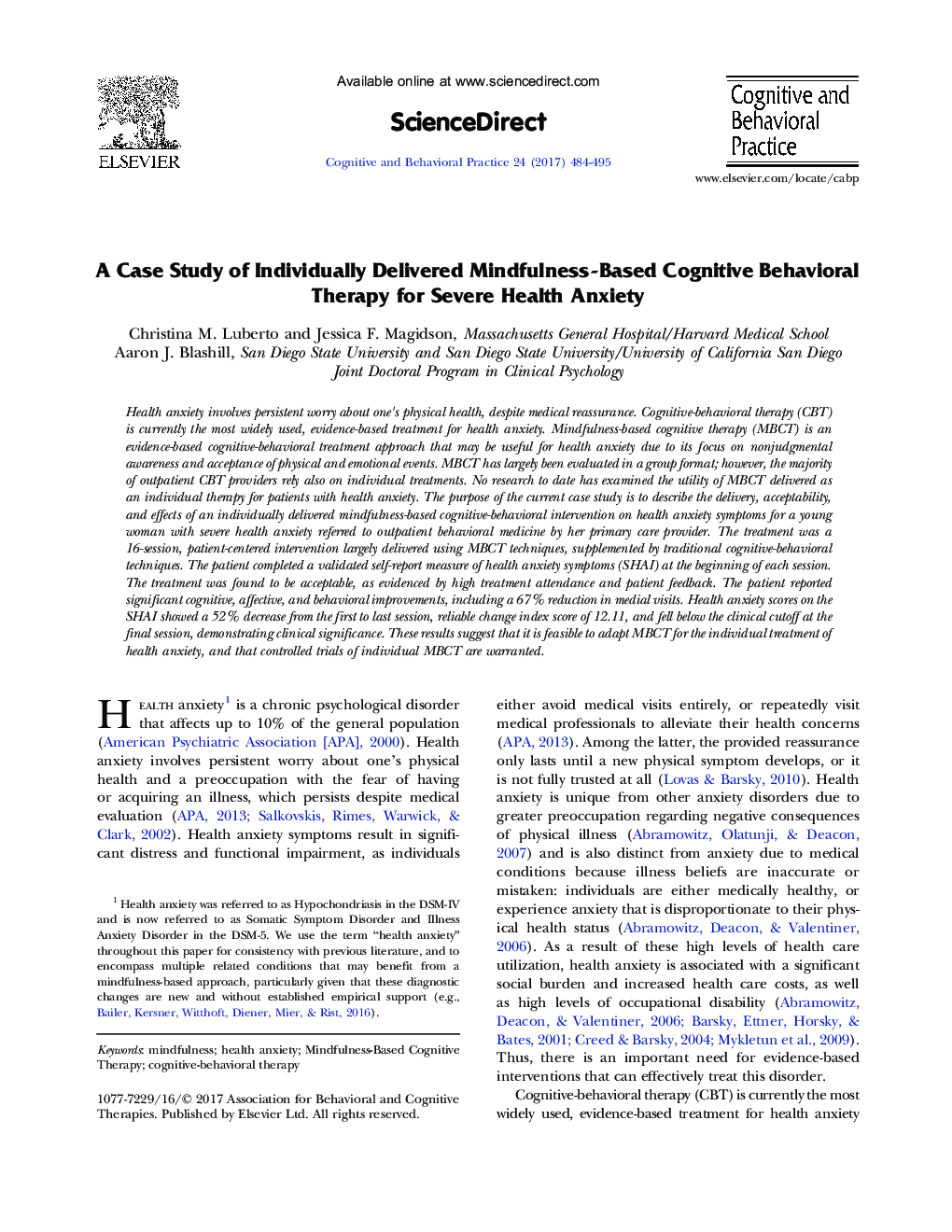| Article ID | Journal | Published Year | Pages | File Type |
|---|---|---|---|---|
| 5038558 | Cognitive and Behavioral Practice | 2017 | 12 Pages |
â¢Mindfulness-Based Cognitive Therapy (MBCT) has evidence to reduce health anxietyâ¢MBCT has only been examined as a group therapy for health anxietyâ¢This case study is the first to examine individual MBCT for health anxietyâ¢It was feasible to treat health anxiety symptoms with individual MBCTâ¢Controlled trials of individual MBCT for health anxiety are warranted
Health anxiety involves persistent worry about one's physical health, despite medical reassurance. Cognitive-behavioral therapy (CBT) is currently the most widely used, evidence-based treatment for health anxiety. Mindfulness-based cognitive therapy (MBCT) is an evidence-based cognitive-behavioral treatment approach that may be useful for health anxiety due to its focus on nonjudgmental awareness and acceptance of physical and emotional events. MBCT has largely been evaluated in a group format; however, the majority of outpatient CBT providers rely also on individual treatments. No research to date has examined the utility of MBCT delivered as an individual therapy for patients with health anxiety. The purpose of the current case study is to describe the delivery, acceptability, and effects of an individually delivered mindfulness-based cognitive-behavioral intervention on health anxiety symptoms for a young woman with severe health anxiety referred to outpatient behavioral medicine by her primary care provider. The treatment was a 16-session, patient-centered intervention largely delivered using MBCT techniques, supplemented by traditional cognitive-behavioral techniques. The patient completed a validated self-report measure of health anxiety symptoms (SHAI) at the beginning of each session. The treatment was found to be acceptable, as evidenced by high treatment attendance and patient feedback. The patient reported significant cognitive, affective, and behavioral improvements, including a 67% reduction in medial visits. Health anxiety scores on the SHAI showed a 52% decrease from the first to last session, reliable change index score of 12.11, and fell below the clinical cutoff at the final session, demonstrating clinical significance. These results suggest that it is feasible to adapt MBCT for the individual treatment of health anxiety, and that controlled trials of individual MBCT are warranted.
